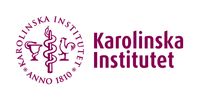All the latest news in cancer research
From genetics and cell biology to the pioneering research on new cancer therapies: ”Frontiers in cancer research and therapy” is a two day conference on cancer hosted later this month by Karolinska Institutet.
Reporters are welcome to attend the symposium and interview the speakers. Conference: Frontiers in cancer research and therapy When: 25 - 26 February 2016 Where: Nobel Forum, Nobels väg, Karolinska Institutet Campus Solna
30 years or so ago, he demonstrated a link between mutations in the HER2 gene and breast cancer. Dennis Slamon from the University of California Los Angeles, USA, then led the development of trastuzumab (Herceptin), an antibody therapy for HER2 that is now extremely important in the treatment of breast cancer. These days he is involved in the development of CDK inhibitors, drugs that inhibit the cell cycle in tumours. He will be speaking on molecular differences in breast cancer and the significance this has for treatment. Cancer can often be prevented, both by drugs and changes in lifestyle. Pamela Goodwin of Mount Sinai Hospital, Canada, researches the link between obesity, blood sugar and cancer, and how the diabetes drug metformin can lower the risk of breast cancer. Jack Cuzick of Queen Mary University of London, UK, will be speaking about cancer prevention using drugs, such as vaccines for cervical cancer or hormone treatments for breast cancer. The heterogeneity of tumours is now a hot topic in cancer research. Breast cancer, for example, varies biologically from one patient to the next, but also within the same patient at different times and stages of tumour development. What is more, the same tumour can even contain different types of cancer cell. What is the most effective way to diagnose and treat cancer when the tumour cells very like this? Nicola Crosetto of Karolinska Institutet is one of the speakers during this session. Treatments that reinforce the immune response to cancer have recently shown results in patients with advanced cancer diseases. Tumour cells can affect the immune system by producing substances that control it in various ways. More about this we will be hearing from David Raulet of the University of California at Berkeley, USA, Karin de Visser of the Netherlands Cancer Institute, Holland, and Russell Jones of McGill University, Canada. Using major epidemiological studies of tumour pathogenesis, it is possible to identify factors that can predict the development of cancer in a patient. Breast density is one such factor that together with molecular factors can help doctors estimate the risk of a patient developing an aggressive form of breast cancer. Kamila Czene of Karolinska Institutet, will be presenting such studies. Download the full programme.
For further information, please contact: Researcher Theodoros Foukakis +46 (0)73 689 6713 Theodoros.Foukakis@ki.se Researcher Andreas Lundqvist + 46 (0)73 642 2412 Andreas.Lundqvist@ki.se
Press Officer Sabina Bossi +46 (0)70 614 6066 sabina.bossi@ki.se
Karolinska Institutet (http://ki.se/english) is one of the world's leading medical universities. Its vision is to significantly contribute to the improvement of human health. Karolinska Institutet accounts for over 40 per cent of the medical academic research conducted in Sweden and offers the country´s broadest range of education in medicine and health sciences. The Nobel Assembly at Karolinska Institutet selects the Nobel laureates in Physiology or Medicine.
Subscribe to releases from Karolinska Institutet - English
Subscribe to all the latest releases from Karolinska Institutet - English by registering your e-mail address below. You can unsubscribe at any time.
Latest releases from Karolinska Institutet - English
New method reveals how the brain and inner ear are formed3.4.2025 20:00:00 CEST | Pressmeddelande
Researchers at Karolinska Institutet have developed a method that shows how the nervous system and sensory organs are formed in an embryo. By labelling stem cells with a genetic ‘barcode’, they have been able to follow the cells’ developmental journey and discover how the inner ear is formed in mice. The discovery, published in Science, could provide important insights for future treatment of hearing loss.
Fluoride in drinking water is associated with impaired childhood cognition7.3.2025 15:30:00 CET | Pressmeddelande
Elevated concentrations of fluoride can occur in well water, and in some countries, it is added to drinking water to counteract caries in the population. A study from Karolinska Institutet in Sweden now supports a few previous studies indicating that exposure to fluoride during the fetal stage or early childhood may impair cognition in children. The study is published in the journal Environmental Health Perspectives.
Children with ARFID face increased risk of disease17.2.2025 17:00:00 CET | Pressmeddelande
Children with avoidant restrictive food intake disorder (ARFID) have an elevated risk of developing psychiatric and physical conditions, a new study from Karolinska Institutet published in JAMA Pediatrics reports. The study highlights the importance of early identification to improve care of these children.
Preterm babies receive insufficient pain management27.1.2025 15:29:17 CET | Pressmeddelande
A large proportion of babies born very early need intensive care, which can be painful. But the healthcare system fails to provide pain relief to the full extent. This is shown by the largest survey to date of pain in neonatal care, now published in the journal Pain.
New study paves way for immunotherapies tailored for childhood cancers20.1.2025 17:00:00 CET | Pressmeddelande
Researchers at Karolinska Institutet and the Astrid Lindgren Children’s Hospital in Sweden have determined how children’s immune systems react to different kinds of cancer depending on their age. The study, which is published in the journal Cell, reveals significant differences between the immune response of children and adults, and has the potential to lead to new tailored treatments for children with cancer.
In our pressroom you can read all our latest releases, find our press contacts, images, documents and other relevant information about us.
Visit our pressroom